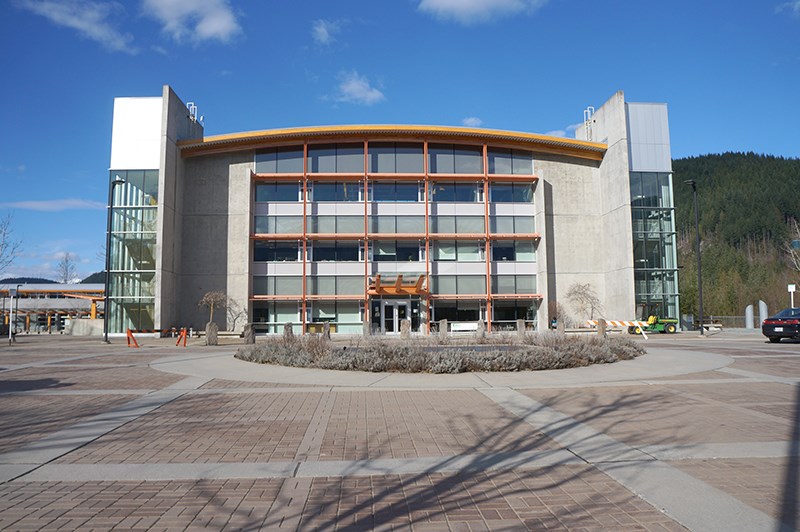They get a reprieve.
Council voted Tuesday to grant a one-year grace period for the collection of development cost charges (DCCs) and allowed the issuing of building permits without the requirement of paying the charges for Quest University Canada and associated building lots.
It is a complicated story that got the district to this point, but in 2002, a deal between the district and the foundation that built the university gave it and associated building lots an exemption from DCCs. The associated lots are southeast of the Mashiter Creek and including some property owners on The Crescent, Strangway Place, Mamquam Road and Aristotle Place.
“When the university was initially proposed, there was some very expensive onsite and – to a degree – offsite costs that were associated with the development of the university,” explained the district’s Gary Buxton during a committee of the whole meeting Tuesday. “To offset those costs, we entered into an agreement, or agreements, that essentially allowed DCC exemptions, thereby making the cost of the university somewhat more palatable for developers.”
With the Oceanfront development deal, DCCs for all of Squamish have been redone. When the new DCC bylaw was recently sent to the provincial inspector of municipalities, the exemptions were deemed no longer supportable.
Therefore, suddenly 66 landowners who thought otherwise could be on the hook for $13,014, each at subdivision, according to the district. Not surprisingly, landowners and the university were not pleased with the removal of the exemption.
“The loss of the DCC exemption and imposition of new charges on the university lands is contrary to commitments made by previous councils, will have significant financial impacts on current owners of University Lands and will have dire consequences on Quest University Canada and its ability to realize its planned goals,” stated a letter from the Timothy Foundation, on behalf of the university. The letter also warned that applying DCCs “could result in claims for financial restitution and breach of contract.”
There is some murkiness around whether or not the exemption from DCCs was forever or if the agreements were discharged in 2009.
District staff say the obligation of the district to waive the DCCs for Quest and associated lots ended in 2010.
Those agreements are no longer in place, Buxton said. “They are not binding, they are not attached to title.”
With the 66 undeveloped subdivided lots in the University Heights Phase 1 and Aristotle Phase 1, if all owners wanted to build in the next year, about $860,000 in potential DCC revenue to the district could be lost.
The district cannot legally go back to property owners who have already built on their lots, according to Buxton.
“This does bother me,” said Councillor Doug Race of having to eventually charge the DCCs to those who were promised an exemption. “I hate retroactive things… this to me is manifestly unfair and so I think you want to look at other alternatives.”
Council’s motion to allow the one-year exemption, which passed unanimously, also included a clause that district staff will go back to the inspector to see if something can be worked out.
“I think of this as sort of an interim period to give us some time to figure out… maybe there is room to engage in the language around this,” said Mayor Patricia Heintzman. “What we want to do is at least allow people to move forward with some assurance they don’t have to pay DCCs in the short term and figure out how we can mediate this issue in the next six months or so.”



